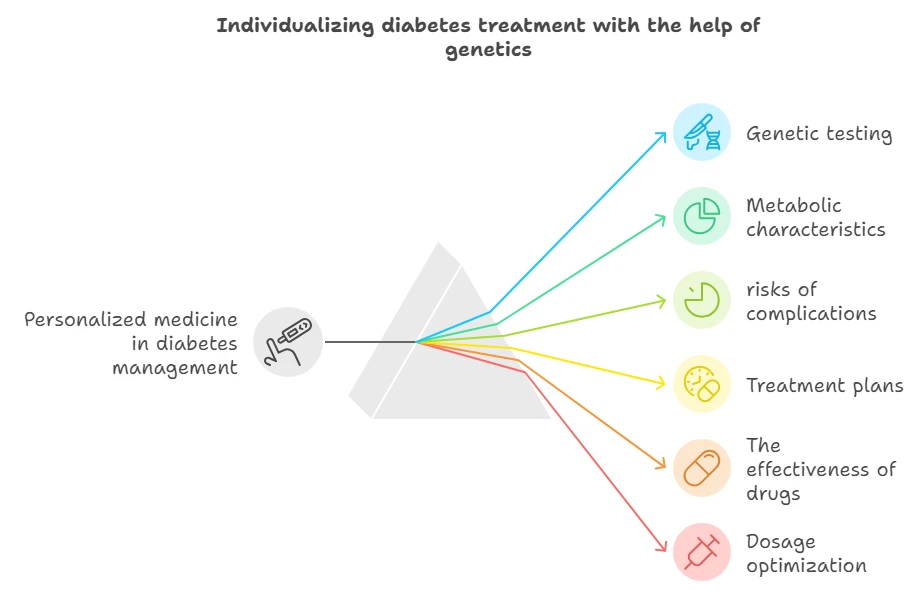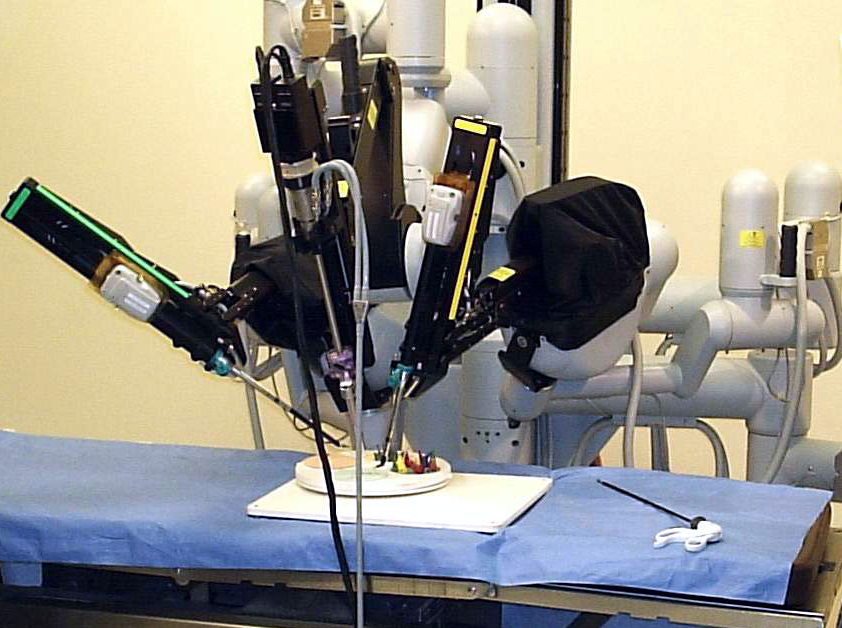

Diabetes is one of the most common chronic diseases that affects millions of people worldwide, including a significant number of patients in Ukraine.
According to the Ministry of Health of Ukraine, the number of people with diabetes continues to grow, which makes the issue of effective management of this disease extremely relevant.
Modern medicine offers new methods of treatment and management of diabetes, giving patients more opportunities to improve quality of life and prevent complications.

Innovative methods of glucose monitoring
Continuous glucose monitoring (CGM) systems
Traditional methods of monitoring blood glucose levels require frequent finger pricks, which can be uncomfortable and painful.
Continuous Glucose Monitoring (CGM) systems provide a revolutionary solution to this problem.
CGM devices such as Dexcom G6 and FreeStyle Libre provide continuous real-time glucose monitoring, providing valuable information on sugar trends and fluctuations throughout the day and night.
In Ukraine, such systems are becoming increasingly available and popular among diabetic patients.
They help to detect hypo- and hyperglycemia in a timely manner, enabling prompt action to prevent it.
In addition, CGMs increase patient awareness of the effects of diet, physical activity and medications on glucose levels, facilitating better self-management.
Studies show that the use of CGM can lead to significant improvements in glycemic control and reduced risk of complications.
This is especially important for patients with type 1 diabetes who require continuous monitoring.

Integration with mobile applications
Today’s CGM devices can synchronize with smartphones, providing convenient data access and advanced analysis capabilities.
Mobile applications allow patients to track historical data, set alerts for critical glucose levels and even share information with medical professionals and family members.
Ukraine has a growing market of mobile applications for diabetes management, some of which have been developed by Ukrainian companies taking into account local needs and peculiarities.
Such applications help to increase patient engagement in the treatment process and facilitate interaction with physicians.

New medicines
SGLT2 inhibitors
Sodium-glucose cotransporter type 2 (SGLT2) inhibitors are an innovative class of drugs that reduce blood glucose levels by increasing its excretion in the urine.
Drugs such as dapagliflozin and empagliflozin are already available in Ukraine and are used for the treatment of type 2 diabetes.
In addition to glycemic control, SGLT2 inhibitors demonstrate additional benefits, including reducing the risk of cardiovascular events and slowing the progression of chronic kidney disease.
This is particularly relevant for Ukrainian patients, given the high prevalence of cardiovascular disease and renal failure in the population.
GLP-1 receptor agonists
Glucagon-like peptide-1 (GLP-1) receptor agonists are another progressive class of drugs for the treatment of type 2 diabetes.
Drugs such as liraglutide and semaglutide stimulate insulin production and suppress appetite, which helps to reduce body weight.
These drugs have shown efficacy not only in improving glycemic control, but also in reducing the risk of cardiovascular complications.
In Ukraine, where obesity and cardiovascular disease are common problems, the use of GLP-1 agonists may be particularly useful.
Table 1. Comparison of new classes of medicines
| Class of drugs | Mechanism of action | Advantages |
|---|---|---|
| SGLT2 inhibitors | Increased urinary excretion of glucose | Lowering glucose levels, protecting the heart and kidneys |
| GLP-1 receptor agonists | Stimulation of insulin secretion, decreased appetite | Glycemic control, weight loss, reduction of CVD risk |

Personalized treatment approach
Genetic testing
Personalized medicine is becoming increasingly important in the management of diabetes.
Genetic testing can determine individual metabolic features and predisposition to certain complications.
Laboratories offering such services are emerging in Ukraine, which helps doctors develop more effective and safer treatment plans.
For example, some genetic variants may affect the effectiveness of metformin or increase the risk of neuropathy. Knowing these characteristics, the doctor can choose the best drug and dosage for each patient.
Individualized meal plans
Nutrition plays a key role in diabetes management.
Designing a personalized diet plan that takes into account the patient’s lifestyle, cultural preferences and economic opportunities increases adherence to diet and treatment effectiveness.
In Ukraine, more and more nutritionists and endocrinologists offer services to develop personalized diets.
They take into account the glycemic index of foods, the balance of macro- and microelements, and the dietary regimen.
Modern approaches include the use of mobile apps to track nutrition and patient education on healthy lifestyles.

Artificial intelligence in diabetes management
Predicting glucose levels
Artificial intelligence (AI) and machine learning are becoming indispensable tools in diabetes management.
AI algorithms can analyze huge data sets from CGM, physical activity, nutrition and medications to predict changes in glucose levels and offer recommendations for adjusting therapy.
Startups and projects aimed at introducing AI into healthcare are emerging in Ukraine.
Such systems help patients and doctors make more informed decisions and prevent acute conditions.
Telemedicine and virtual assistants
Telemedicine has become particularly relevant in the COVID-19 pandemic.
It provides remote monitoring and counseling, which is important for patients with chronic conditions such as diabetes.
Virtual assistants and chatbots can provide round-the-clock support, answering patients’ questions, reminding them to take their medications and offering advice on disease management.
In Ukraine, such services are beginning to be integrated into practice, improving access to medical care.
Table 2: Technological innovations in diabetes management
| Technology | Description | Advantages |
|---|---|---|
| Artificial intelligence | Data analysis and forecasting | Personalized therapy, prevention of complications |
| Telemedicine | Remote health care | Accessibility, safety, time saving |

Future prospects
Stem cell therapy
Stem cell therapy represents a promising avenue for the treatment of type 1 diabetes.
Studies show that stem cells can transform into insulin-producing beta cells, potentially restoring pancreatic function.
Clinical trials in this area are underway in Ukraine, and in the future such techniques may become available to patients, offering the possibility of a cure for diabetes.
Artificial pancreas
An artificial pancreas is a system that combines a CGM and an insulin pump that automatically regulates insulin supply depending on glucose levels.
Such systems have already passed clinical trials and are beginning to be introduced into practice abroad.
Ukrainian specialists are following these innovations, and there is hope that in the near future the artificial pancreas will become available for Ukrainian patients as well, significantly simplifying the management of type 1 diabetes and improving the quality of life.
Conclusion
Modern advances in medicine and technology open new opportunities for patients with diabetes in Ukraine.
Innovative monitoring methods, new classes of medicines, personalized approach and application of artificial intelligence make diabetes management more effective and convenient.
It is important that patients are active participants in their care, collaborating with health care professionals and utilizing available resources.
Collaborative efforts can lead to significant improvements in disease control and reduced risk of complications, improving quality and length of life.



